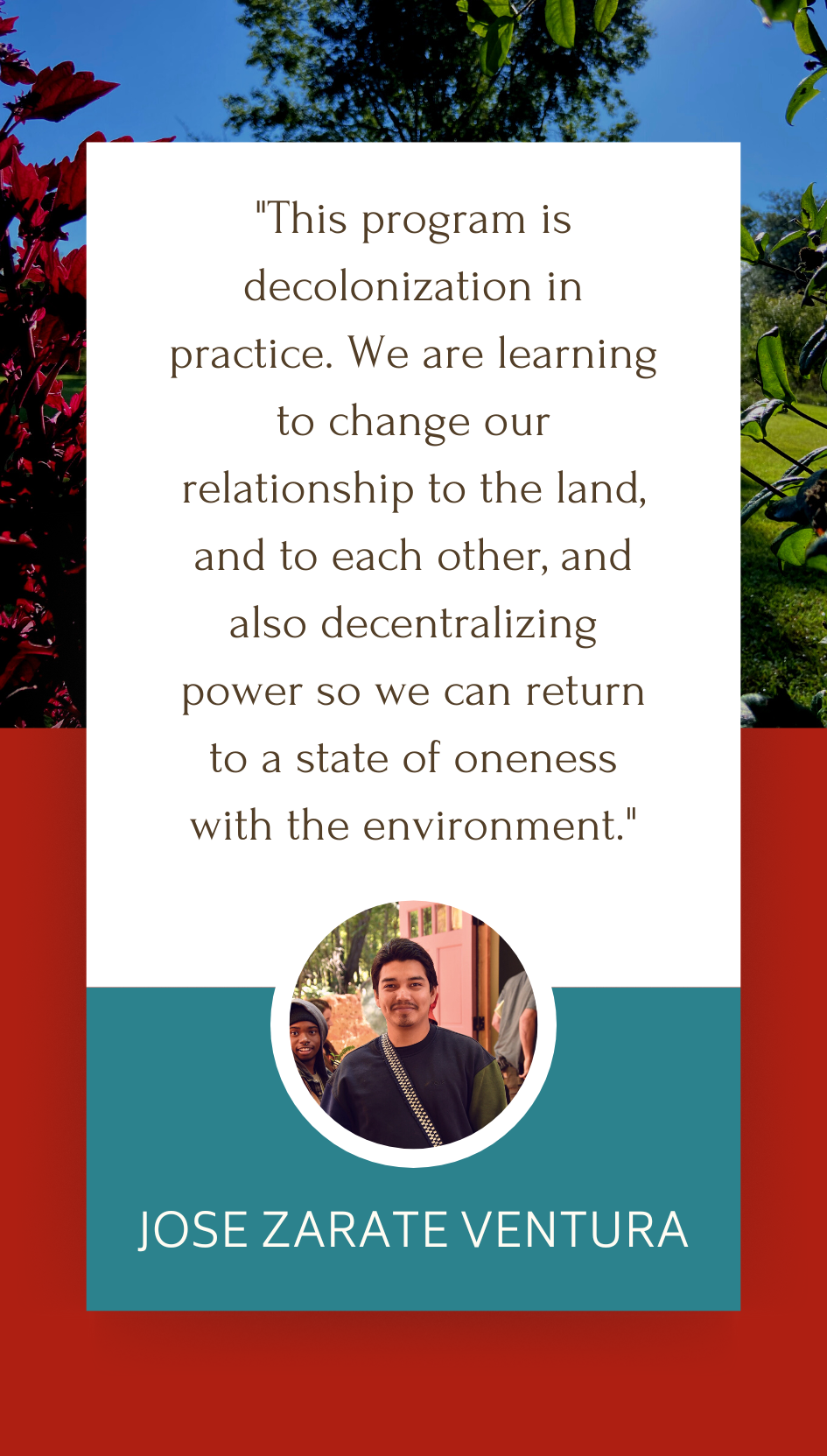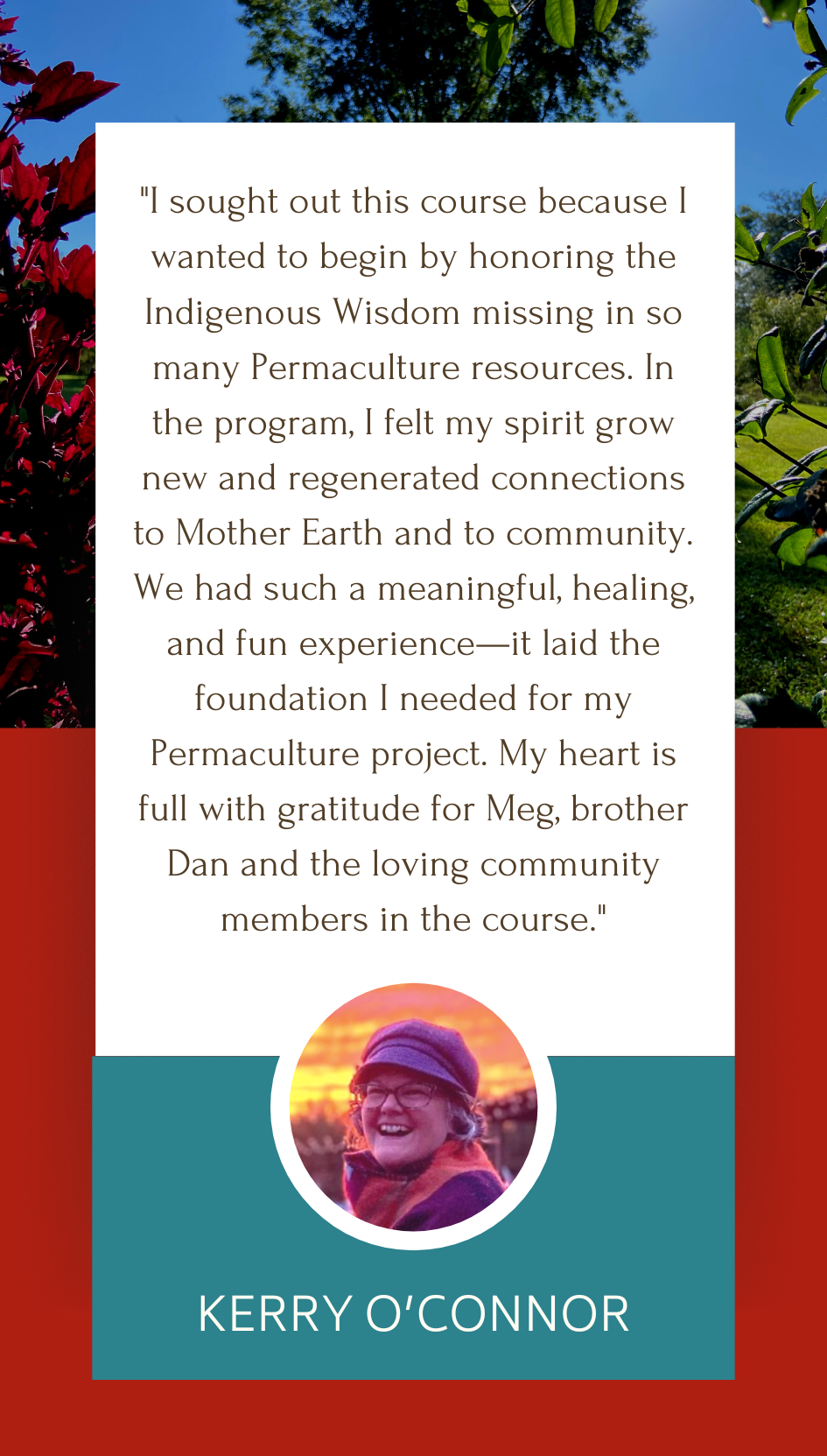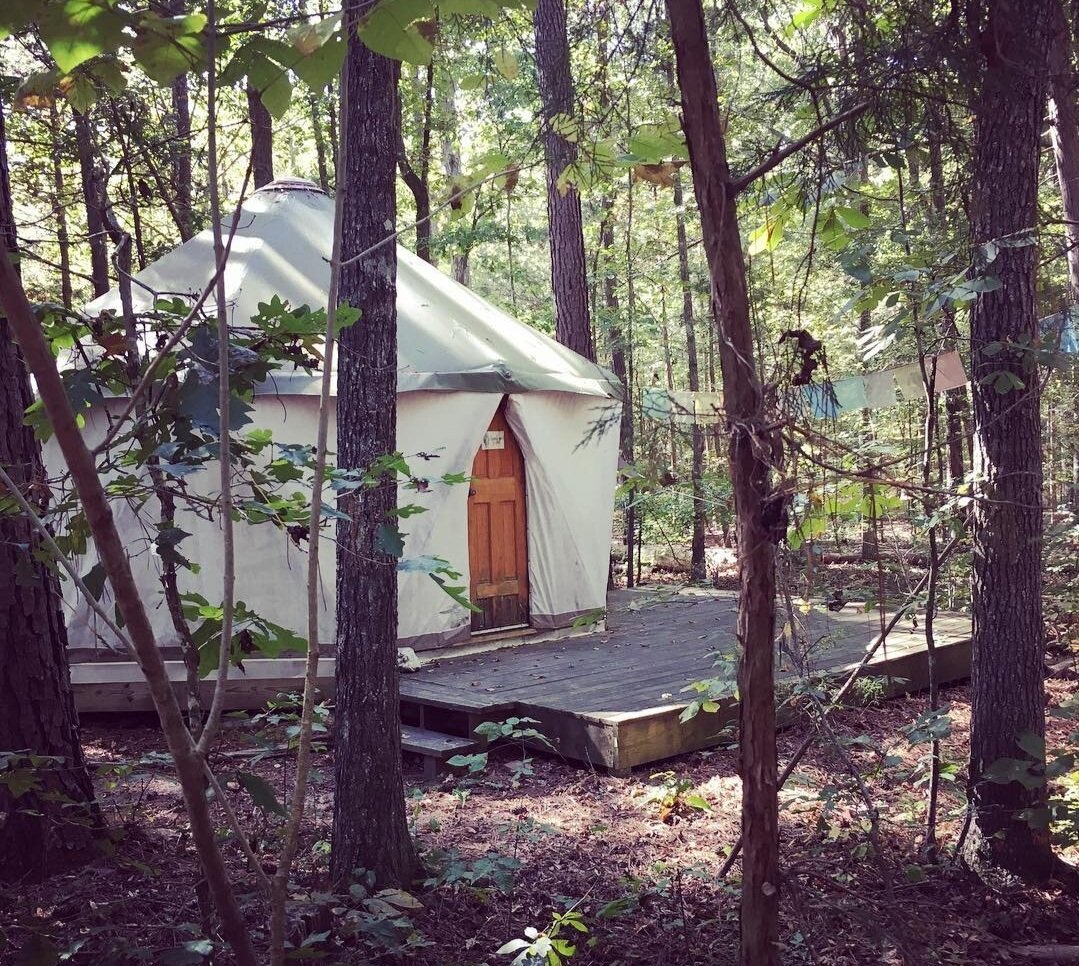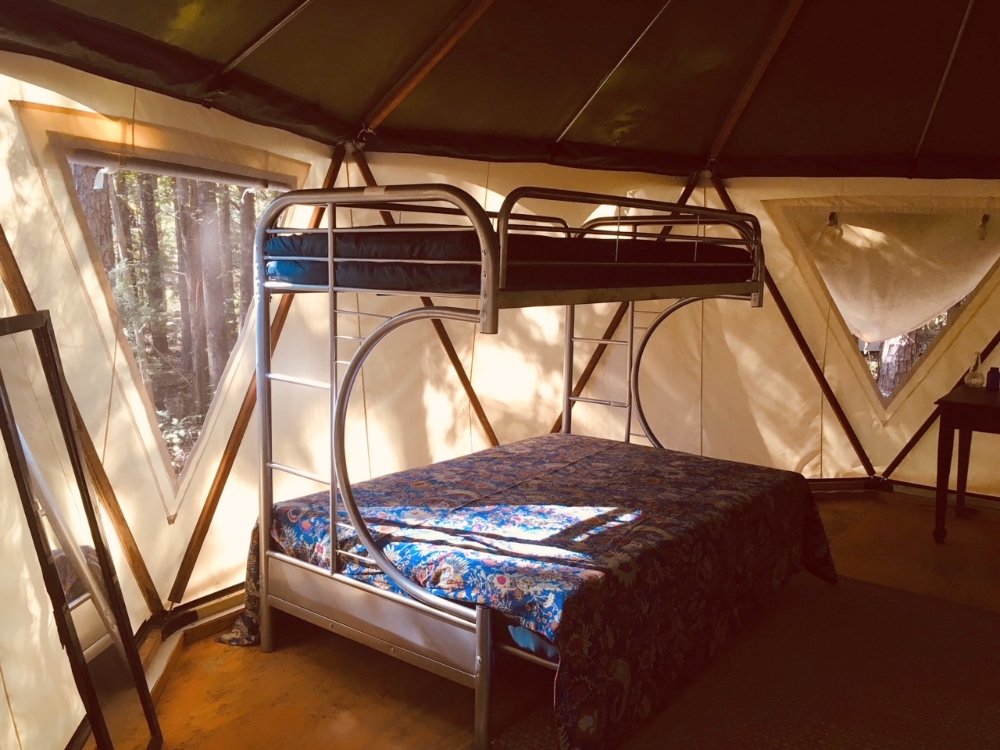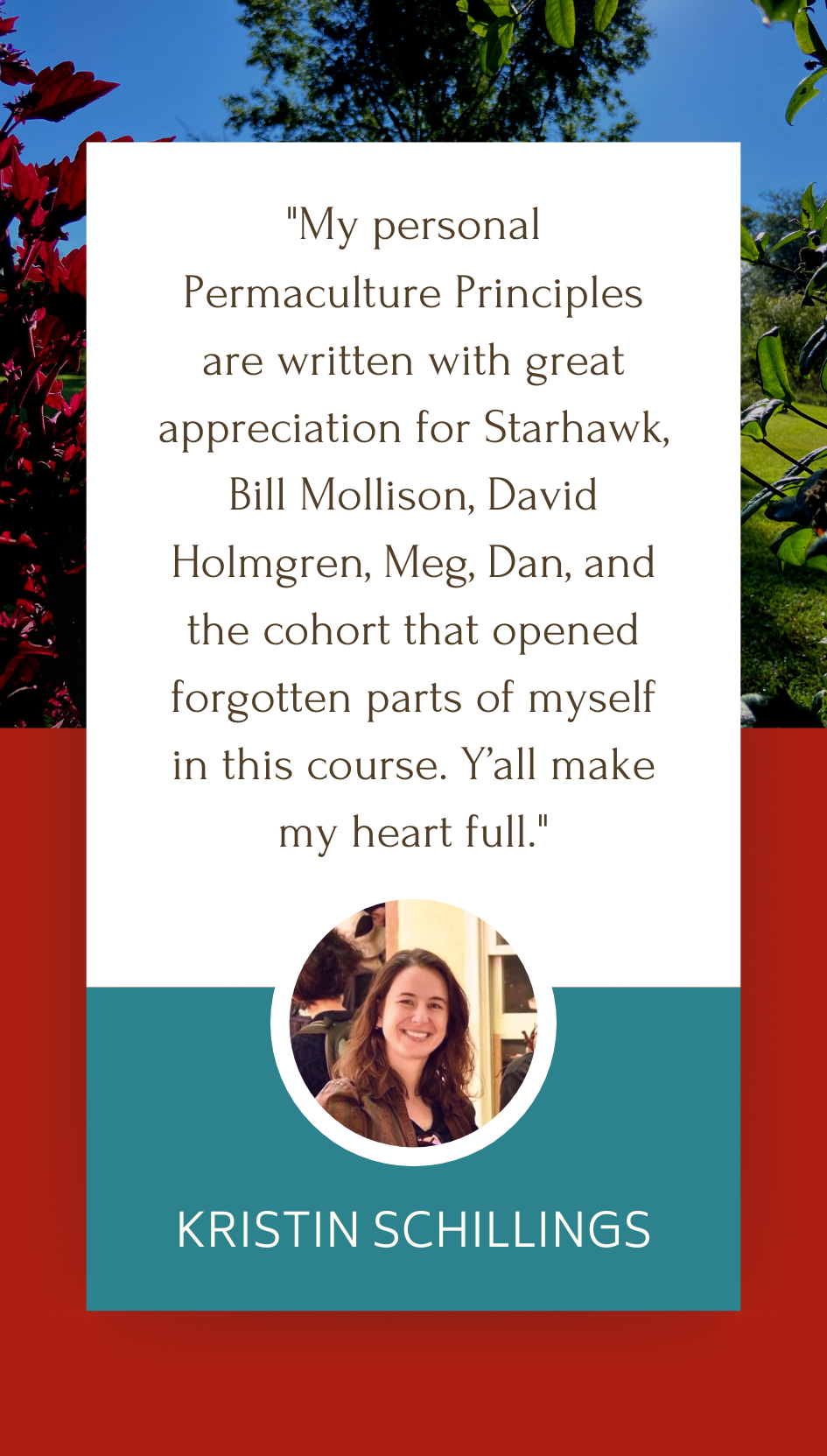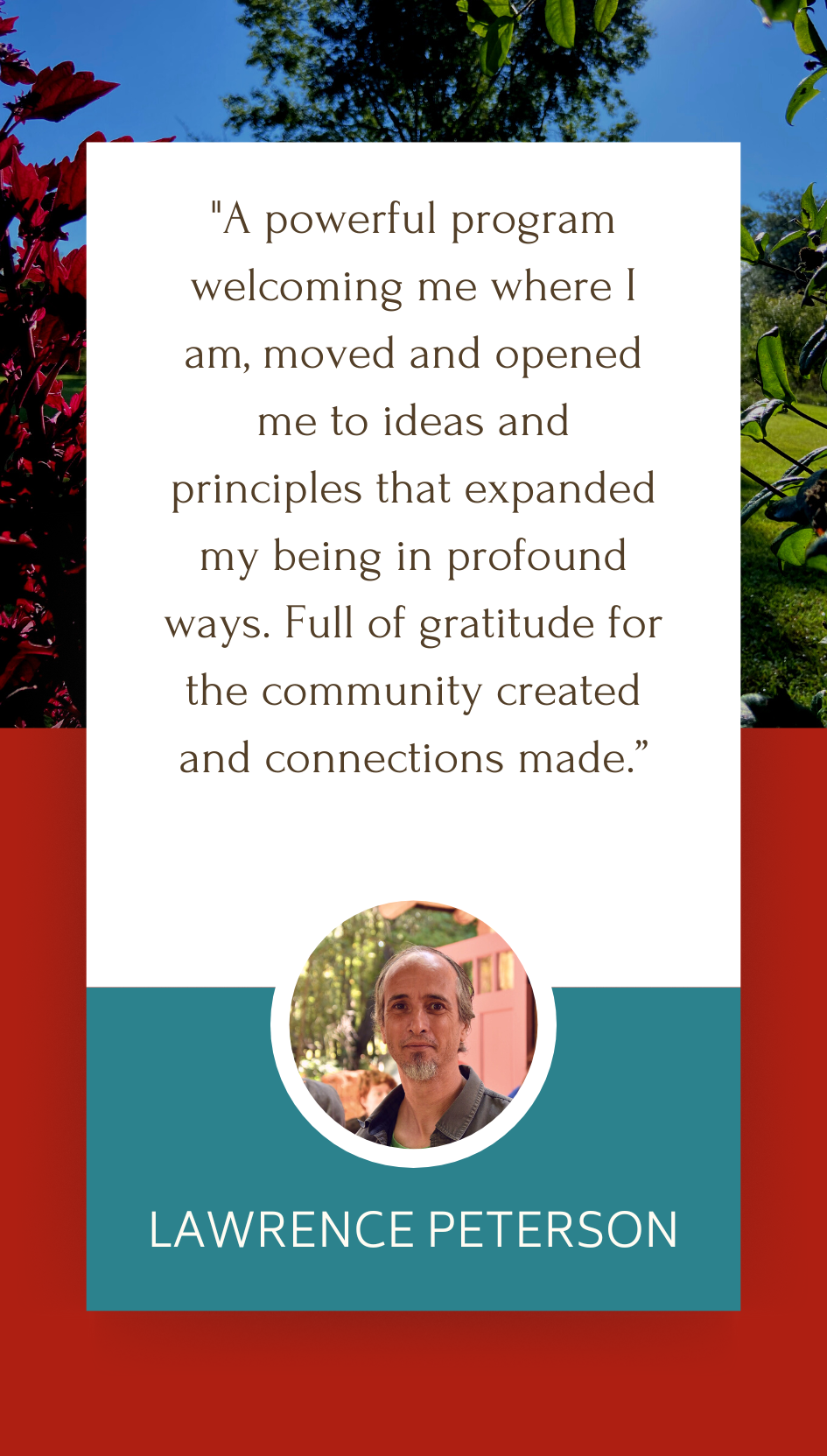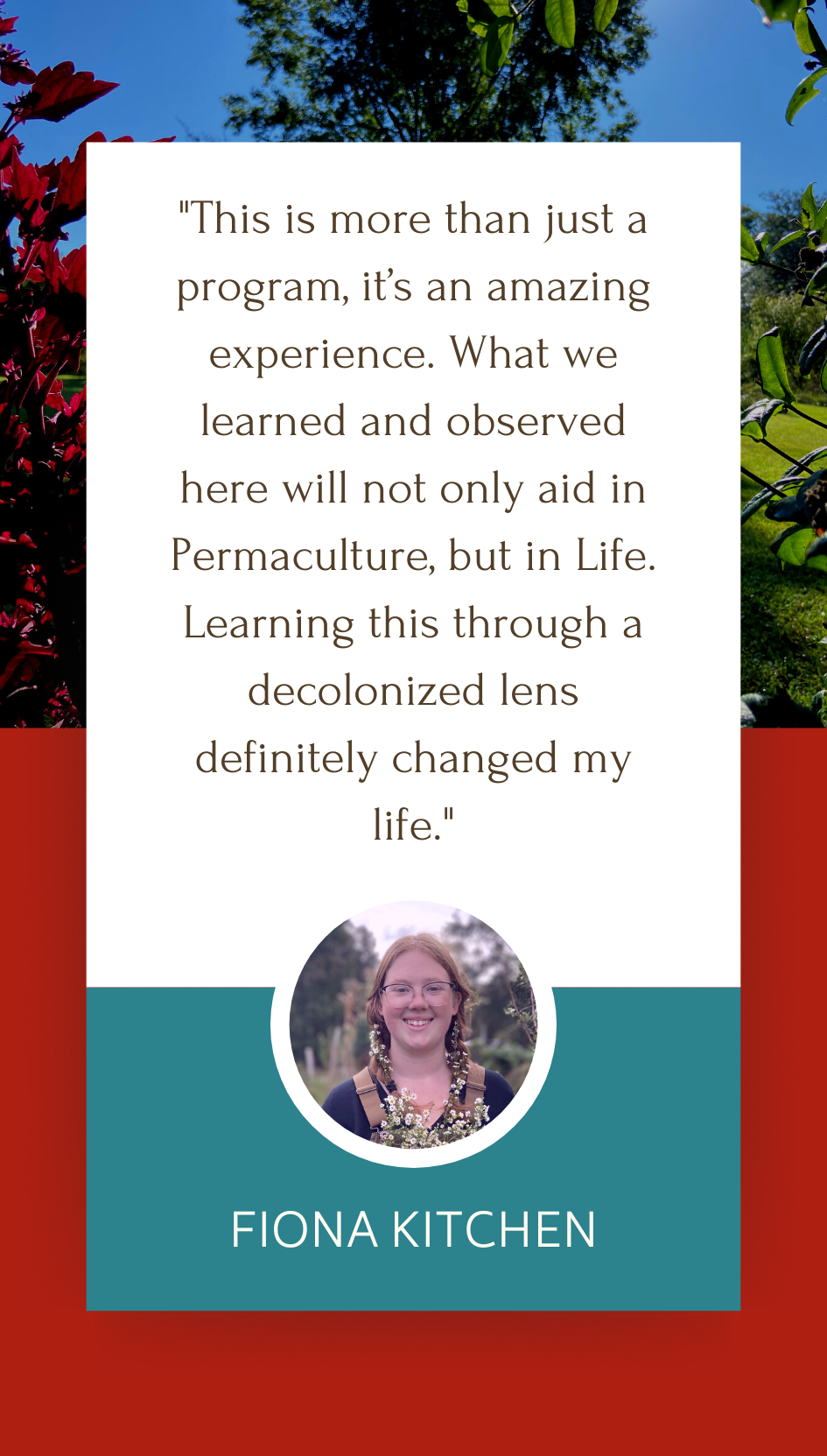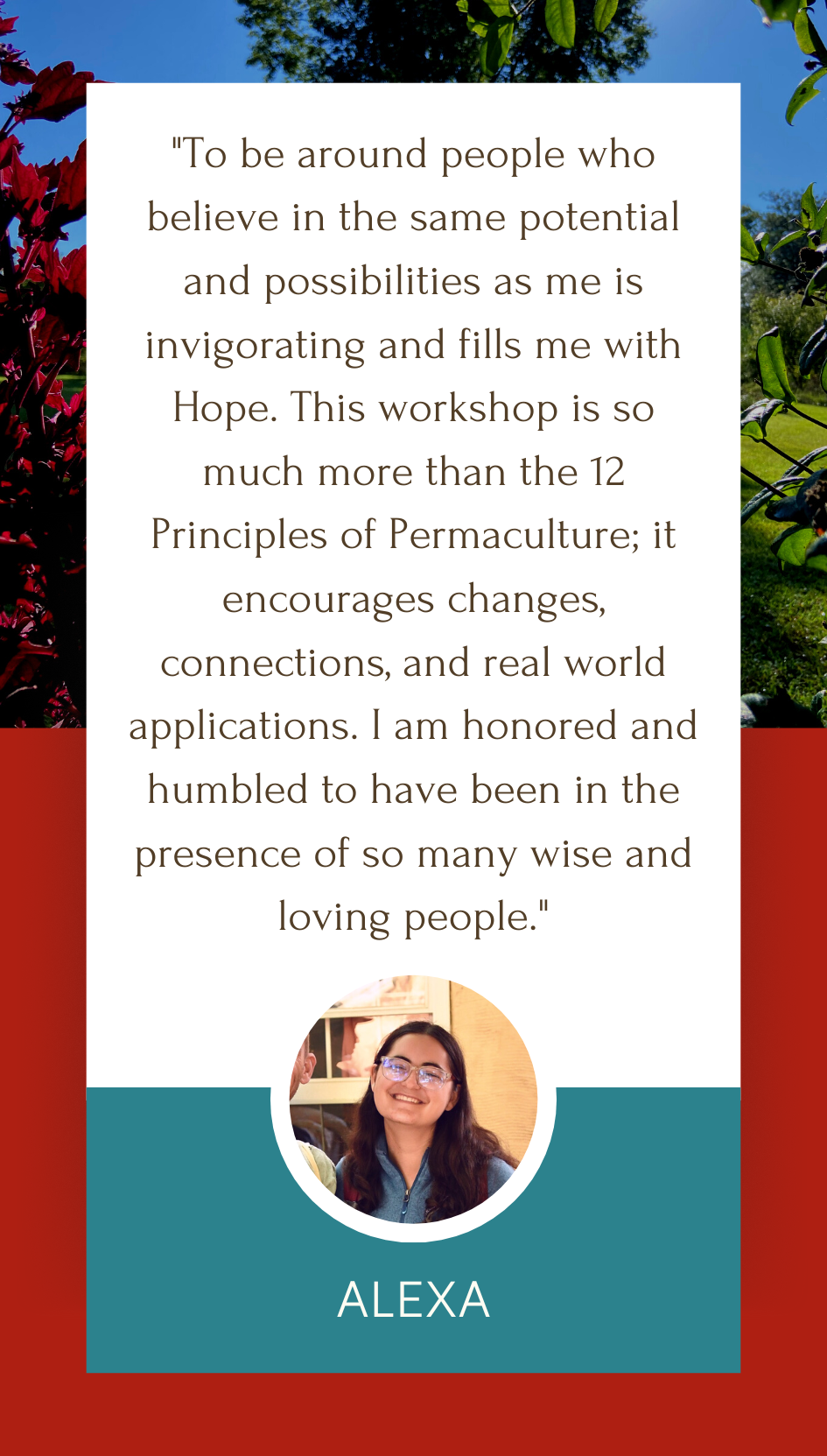regenerative PERMACULTURE:
Building Cross Cultural Relations with Mother Earth
TAUGHT BY DAN WAHPEPAH & MEG TOBEN
Scroll Down & Join the Interest List now for 2026!
Last year’s 5-Day Regenerative Permaculture Course was one of the best yet. Check out these photos!
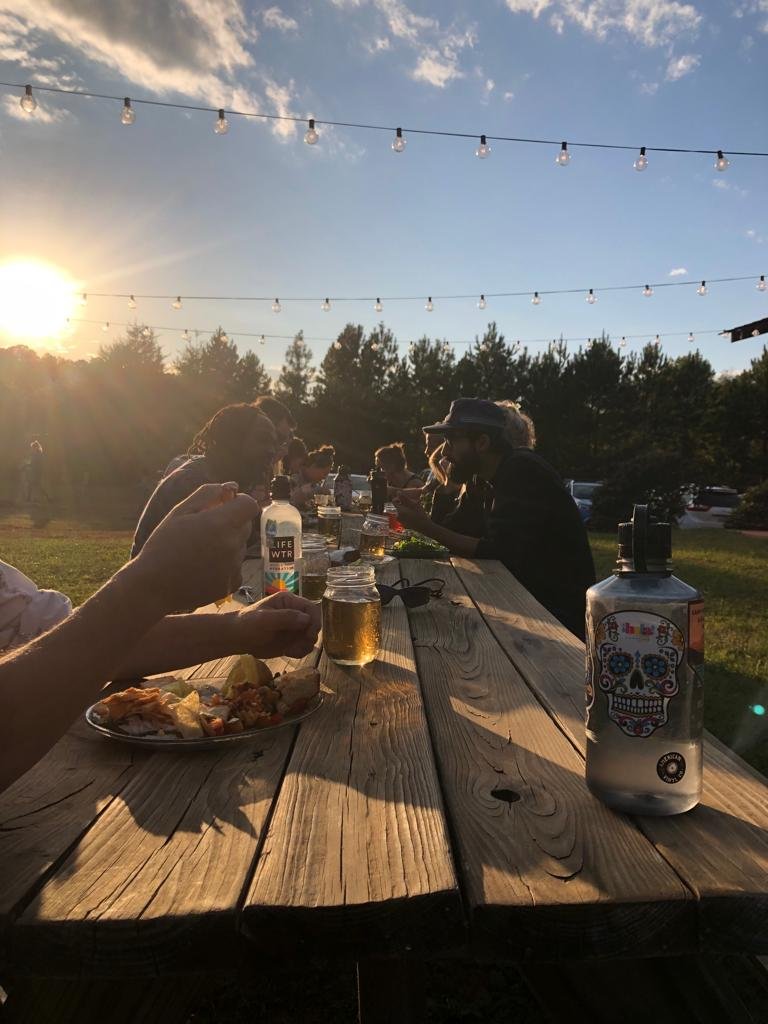
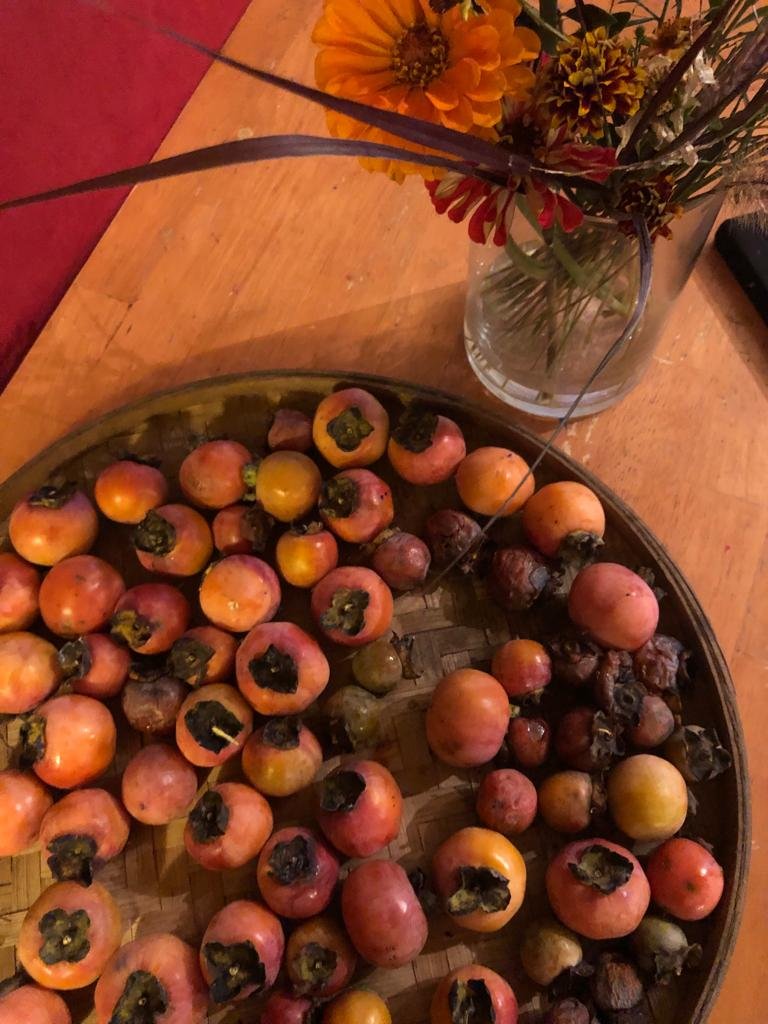
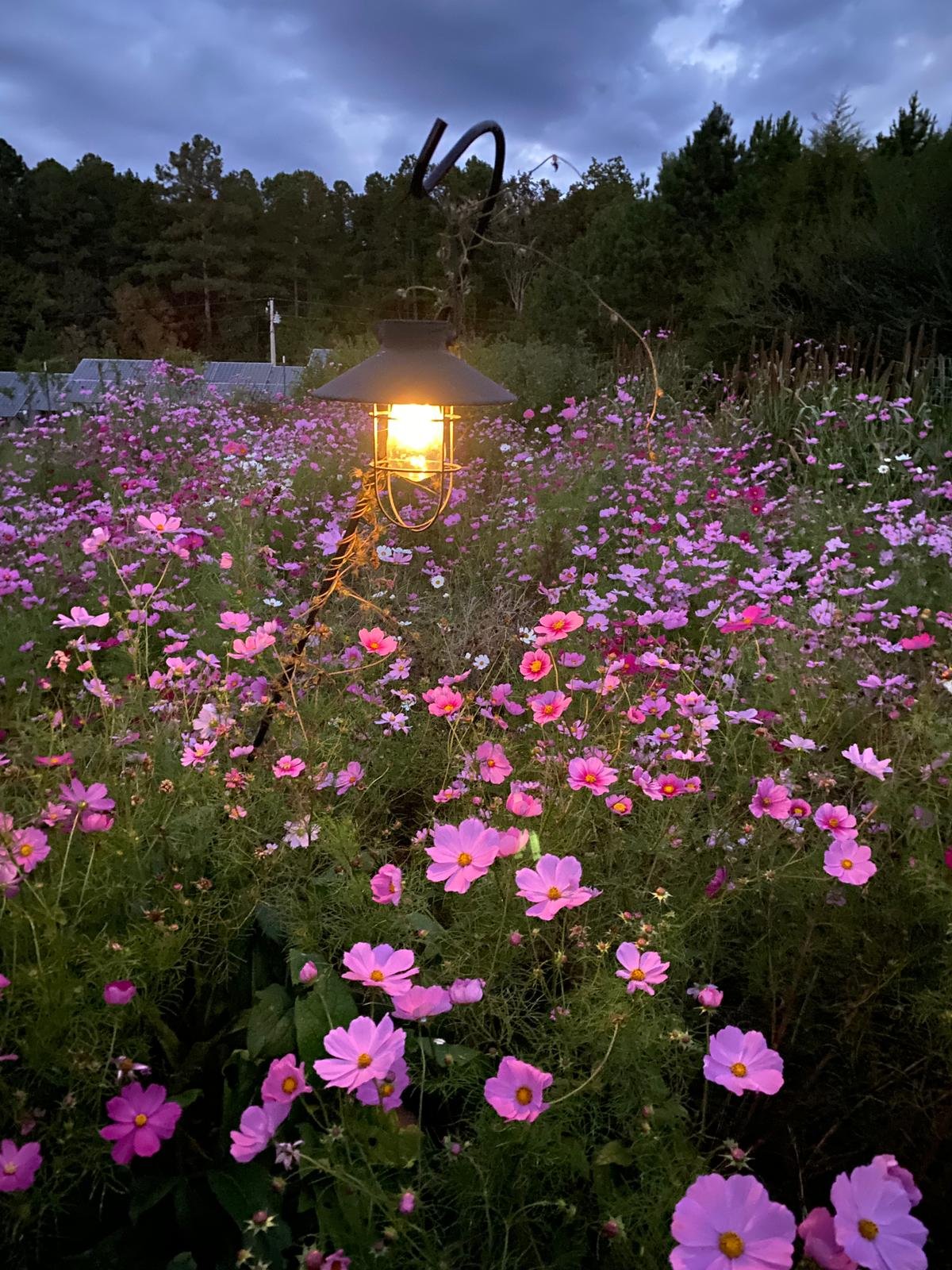
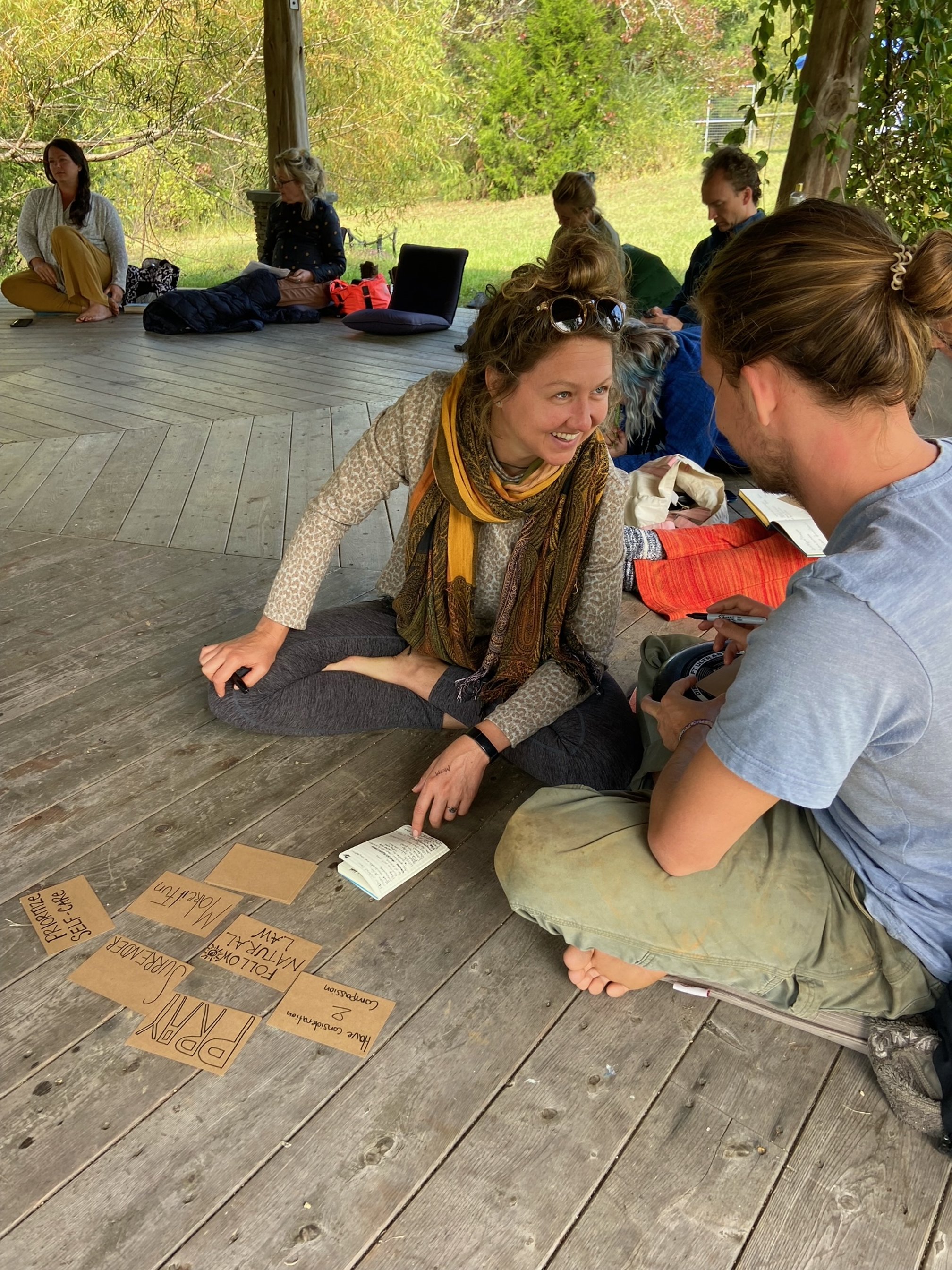
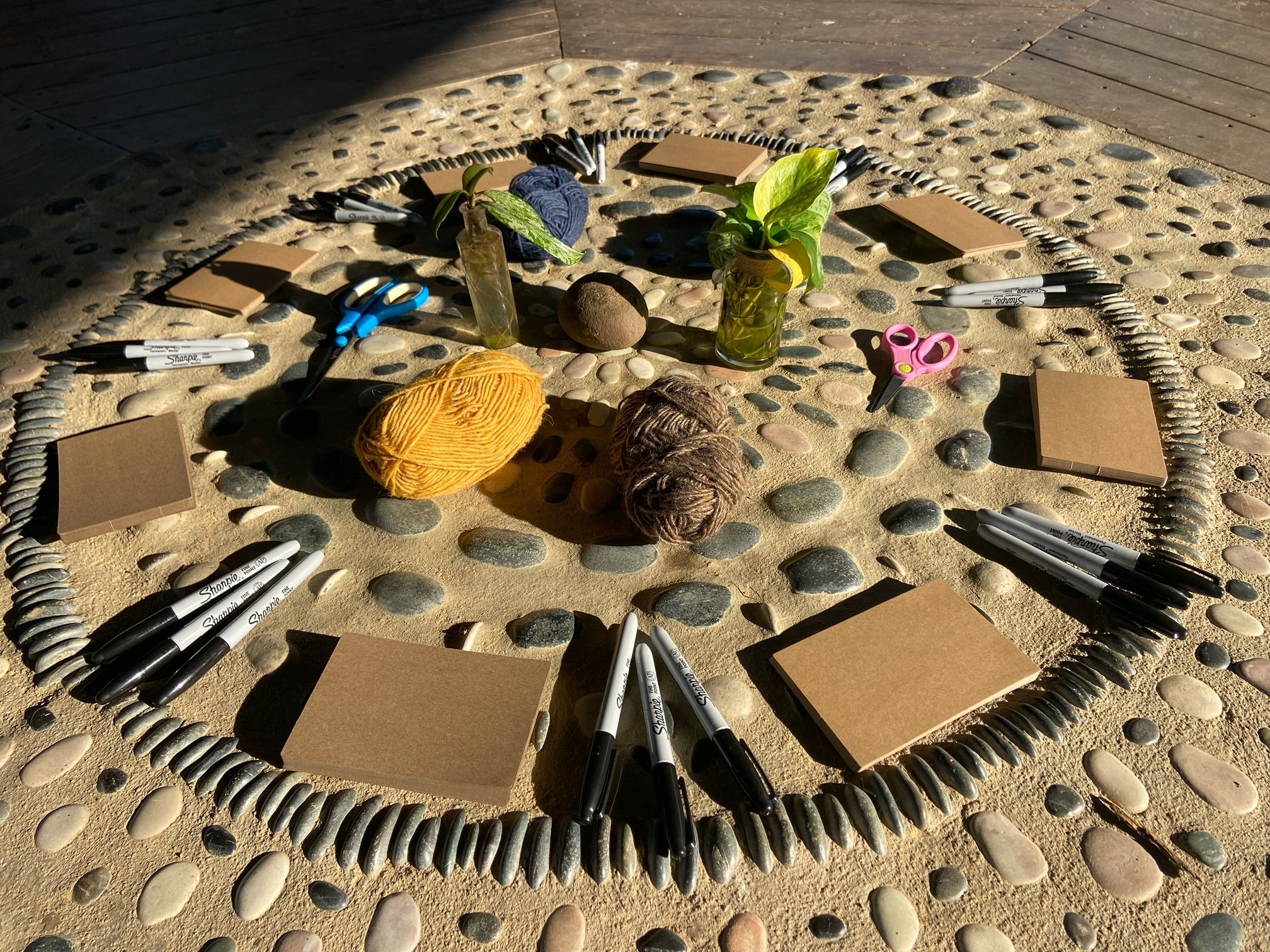
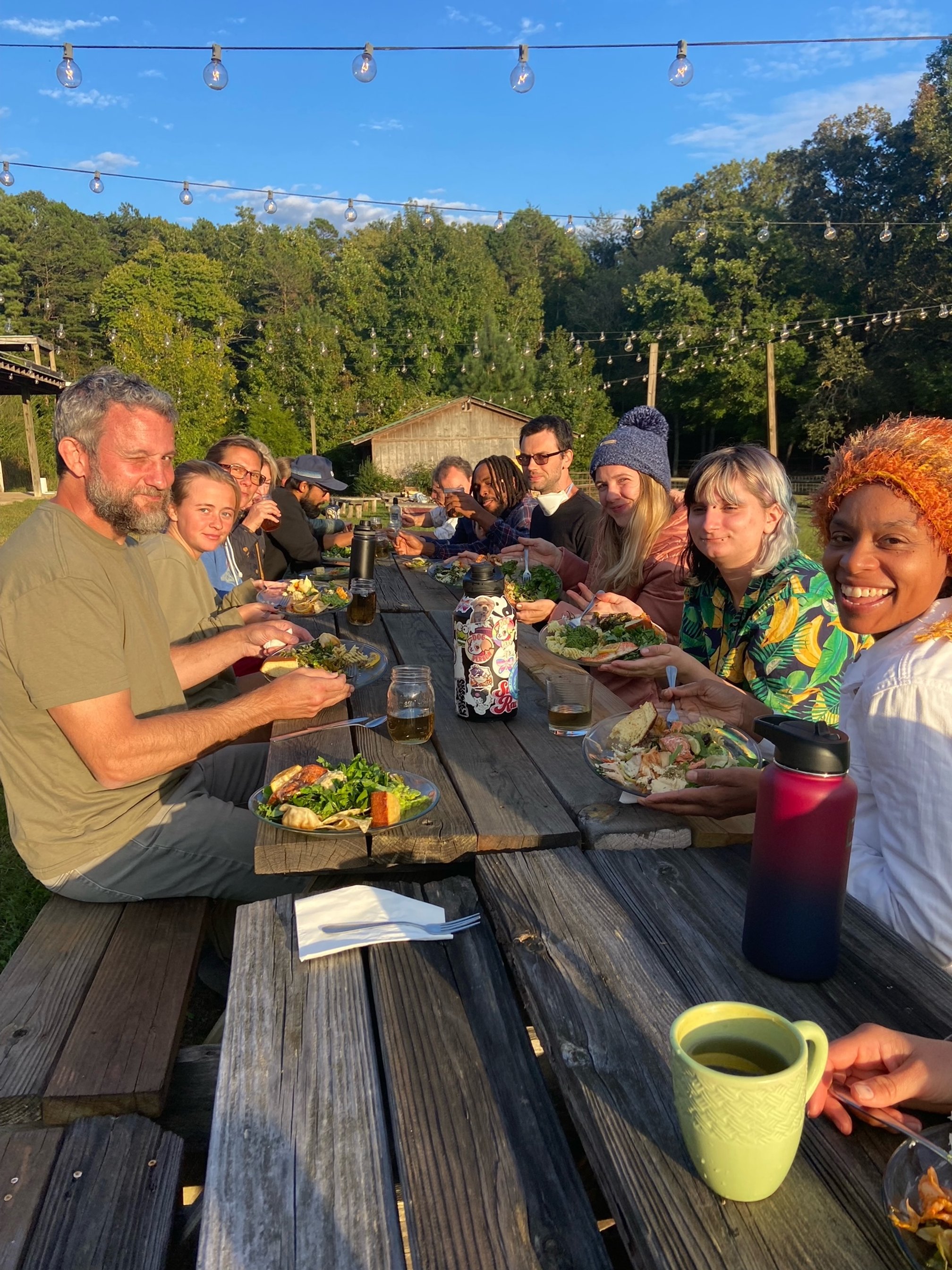
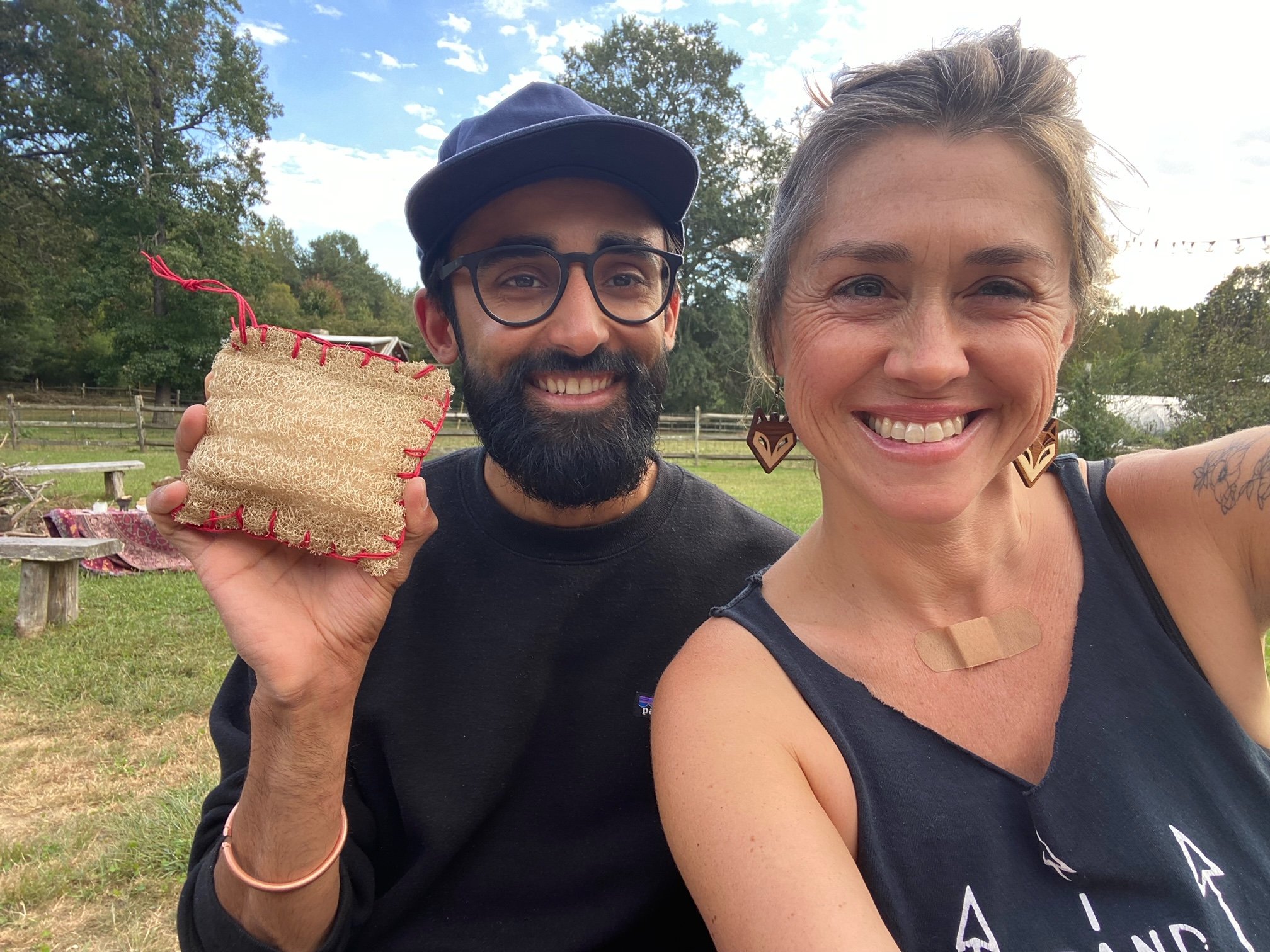
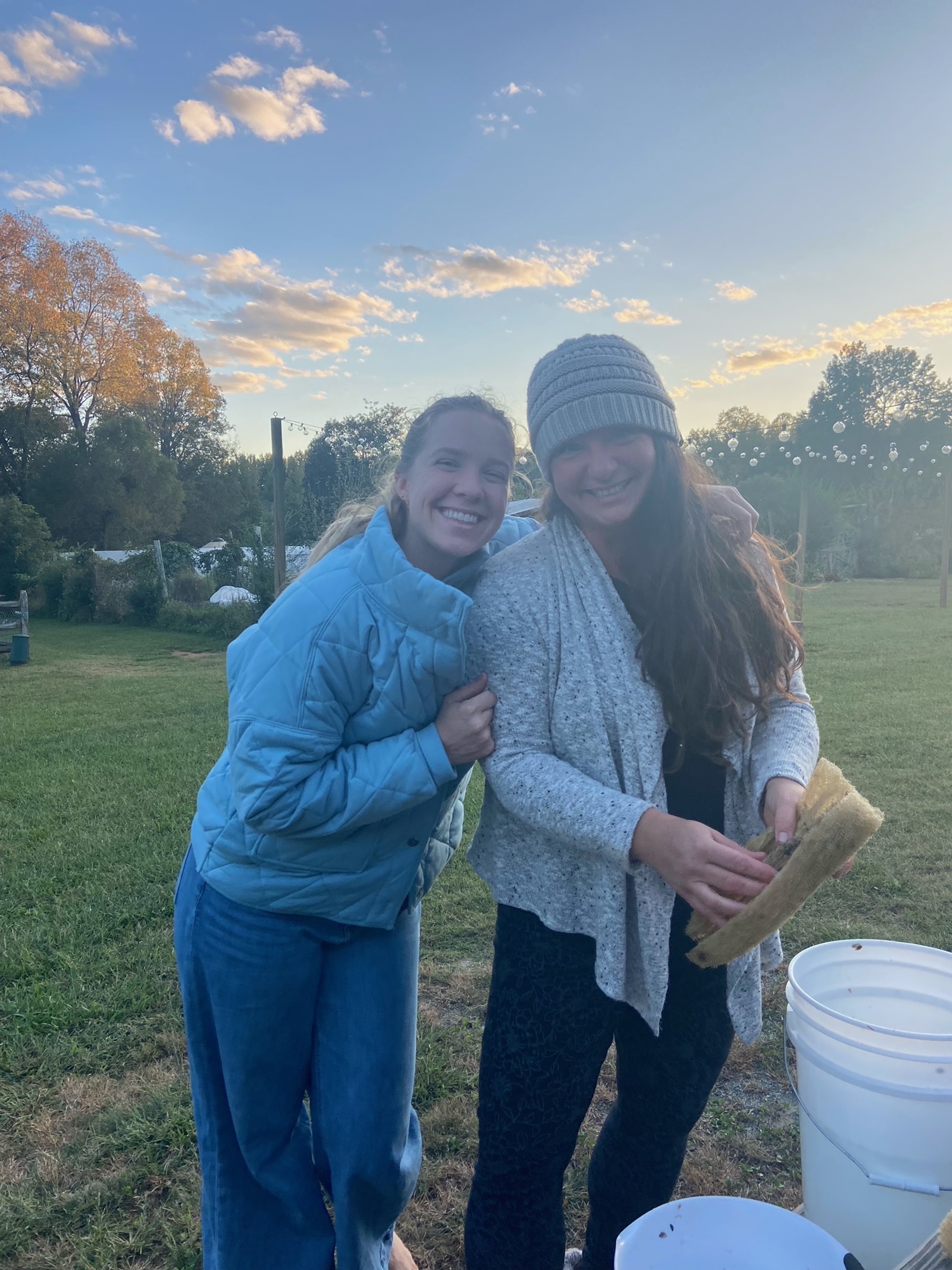
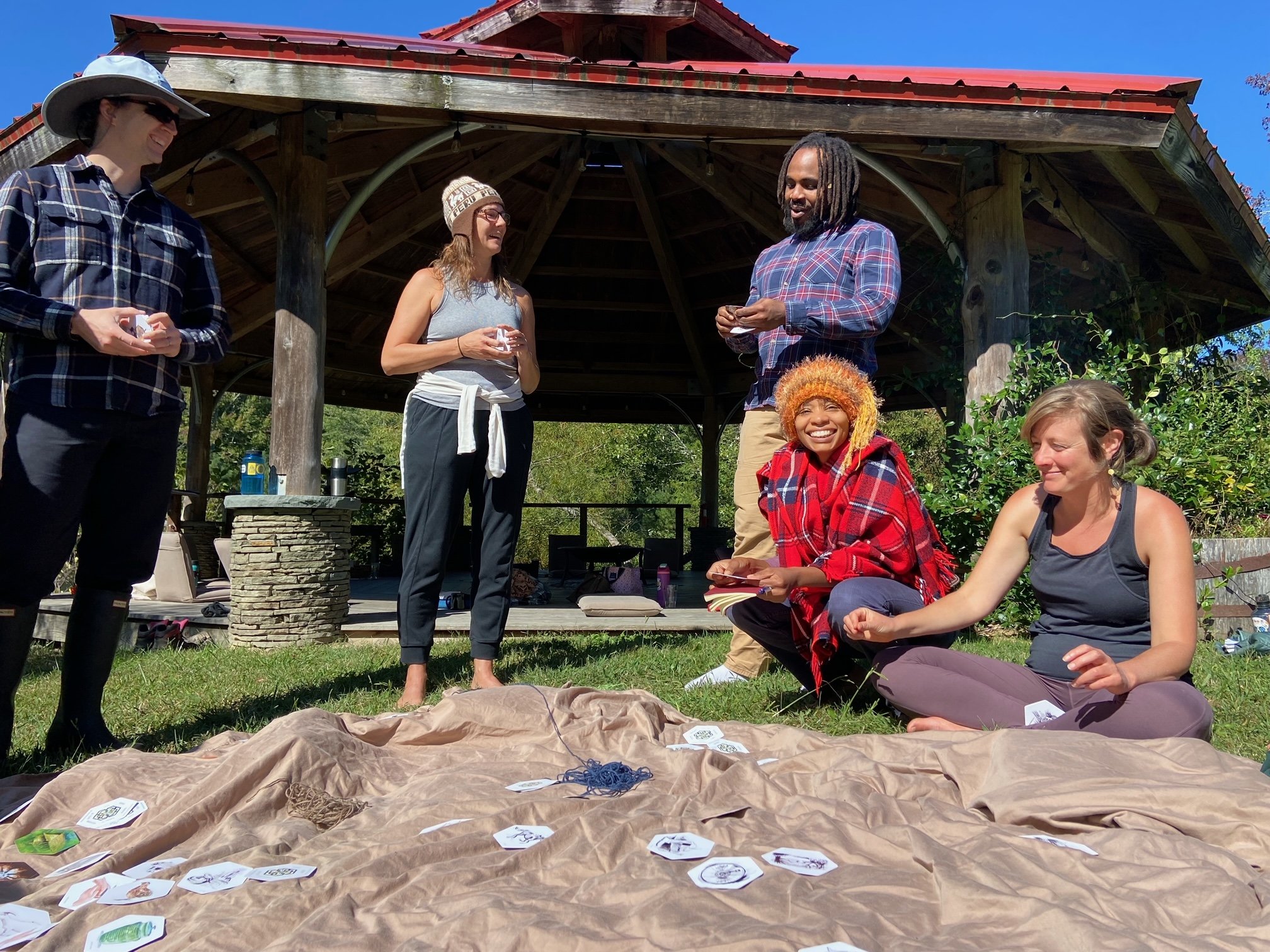
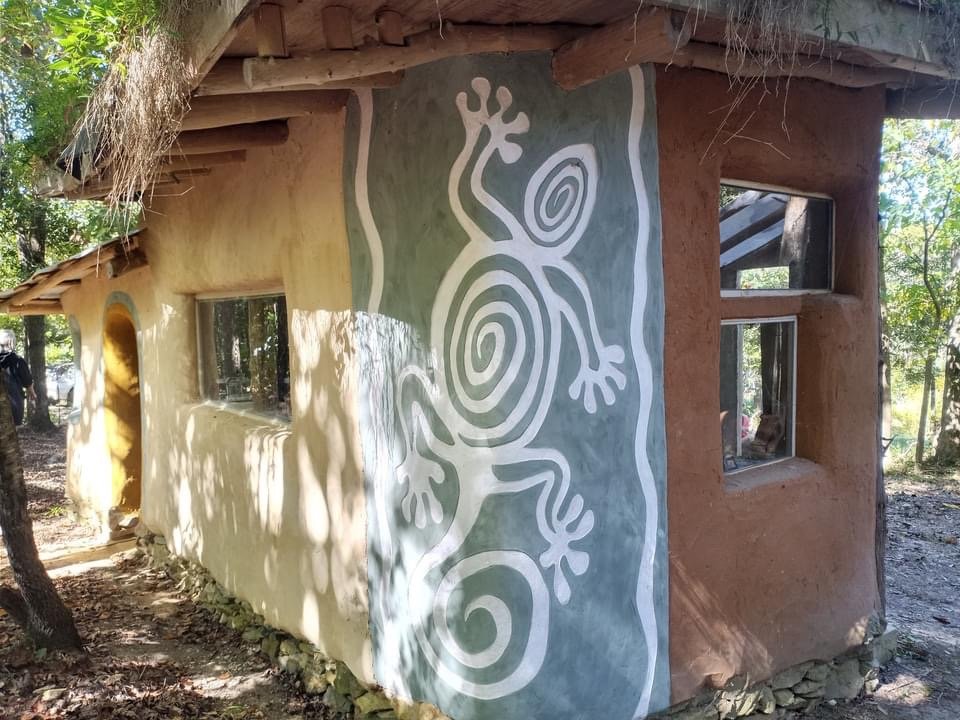
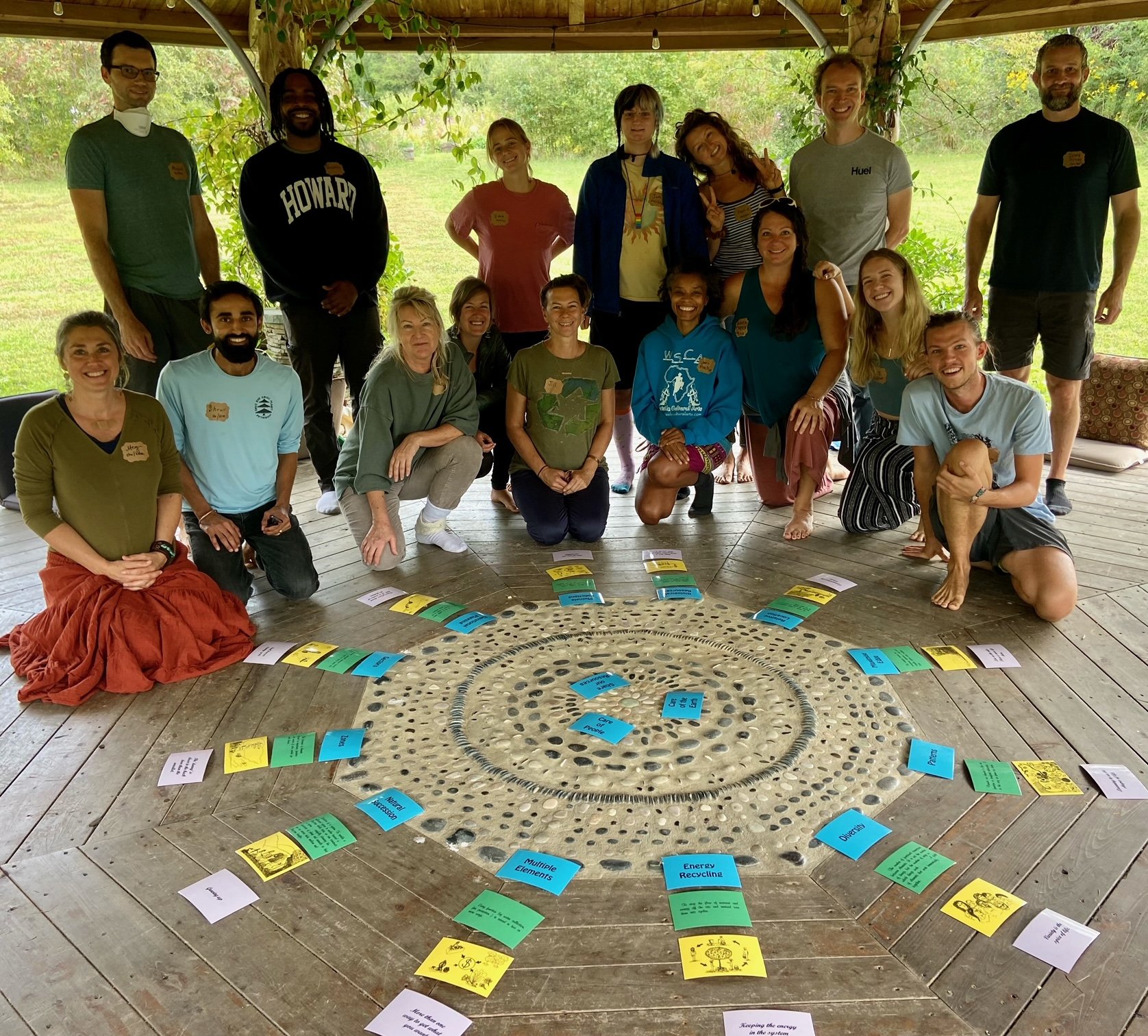
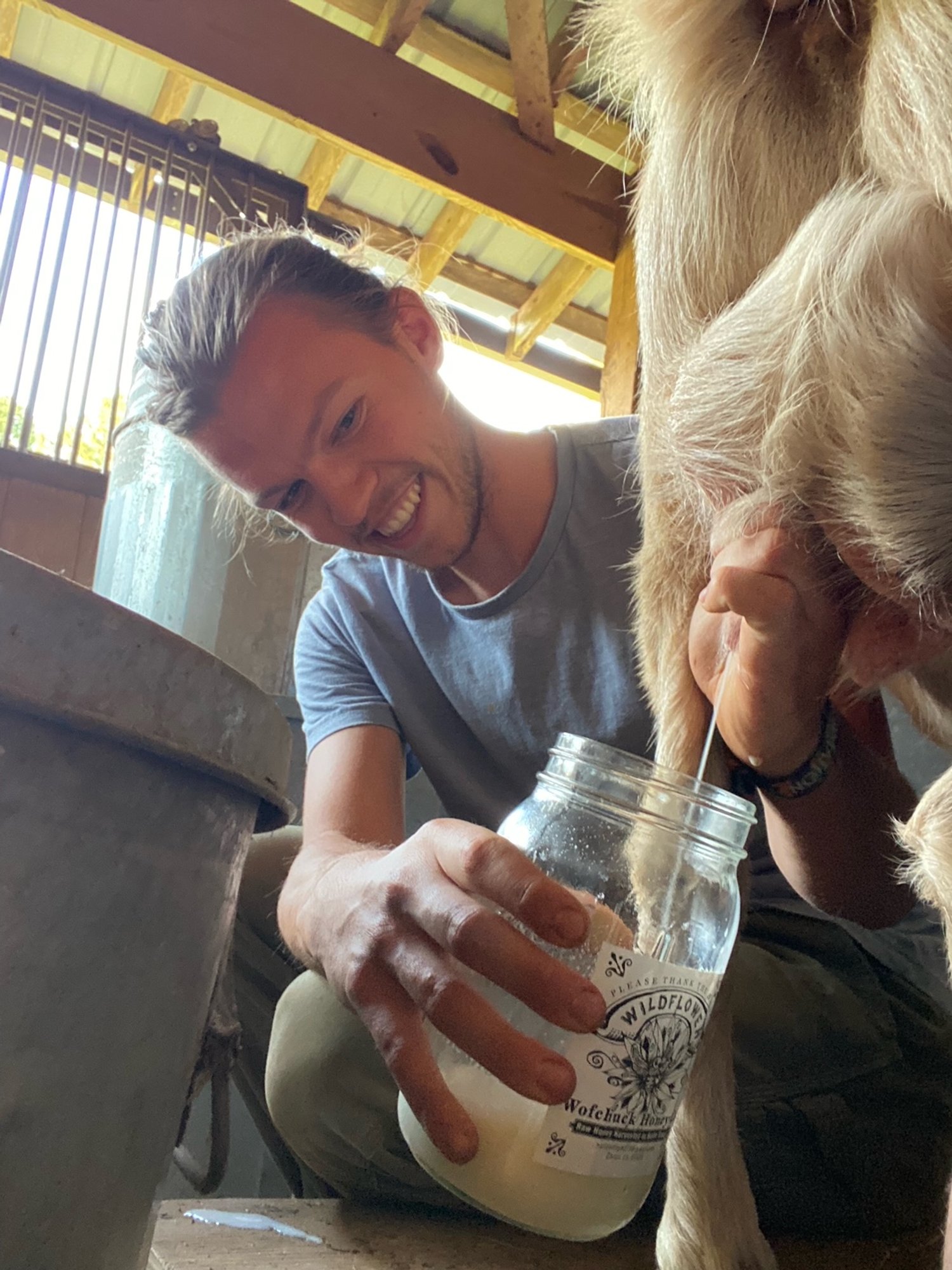
The Eco-Institute has been hosting Permaculture classes for many years and gradually recognizing that the term “Permaculture” is a colonizer-coined term representing ecological knowledge and practices originally lived by first nations peoples in relationship with their places. We are beginning to understand that Permaculture can be and has been used to perpetuate indigenous erasure.
With the hope that Permaculture can be taught in way that honors indigenous wisdom, we sent out a call for indigenous permaculture teachers who might be willing to collaborate with us. Dan Wahpepah answered this call, and we have been honored to offer this program for two years now. Click here for a brief review of our 2021 class.
We hope this can be a contribution toward re-sourcing ecological design as indigenous knowledge and practice. We enjoy being guided and taught by other (especially local) indigenous people who are interested in navigating this complex territory, with the goal of contributing to social & ecological healing.
This 5-day course offers theoretical and practical methods to support your understanding and practice of ecological design. Discover new ways in which you can apply permaculture principles where you live. Explore natural building projects, energy cycles, forest gardening, and other bioregion-specific ways to engage the principles of permaculture. Enjoy a week in the beautiful garden sanctuary surrounded by the inspiring community at The Eco-Institute.
The Regenerative Permaculture Course at The Eco-Institute qualifies for 20 hours of Criteria II or for 10 hours of Continuing Education credits for the NC Environmental Education Certification.
PROGRAM DETAILS
Schedule:
9am-noon Morning Teaching Block
Break for Lunch and Rest
3-5pm Storytelling and Handwork Projects
Break for Dinner
7-9pm Evening Session
we will explore:
Resilient Local Food Systems
Honoring Healthy Water Systems
Generating Energy Cycle Loops
Natural Building with Local Materials
Landscaping and Gardening Techniques
Fostering Vibrant Community
program costs
GENEROSITY RATE: $800 COMMUNITY RATE: $600 SUBSIDIZED RATE: $400
Additional cost for registrants who choose to stay on the land; when you register, please also email sanctuaryfarmhost@gmail.com to set up your accommodations. See below for more details.
Registered participants are welcome to stay on the land at Sanctuary Farm. For an addtional fee, participants are invited to bring a tent and camp, stay in the Yome village, glamping-style, or stay in one of three climate-controlled rooms. Non-local participants may also be interested in staying at a local Airbnb in the Chapel Hill/Carrboro or Saxapahaw area.
Yomes are yurt-dome hybrids and are 18' octagonal canvas and wood-framed structures in the forest with no electricity or plumbing. Each Yome has two sets of comfortable bunk beds. (Pictures 1 and 2 above) Just a 3-minute walk away you’ll find the Sanctuary Farm Barn, holding our communal kitchen, bathrooms, and outdoor showers.
Sanctuary Farm also has four rooms available for individual participants or couples that would like to stay onsite but would prefer to sleep in a room with electricity, a futon, and with close access to the barn. (Picture 3 above)
Participants are asked to bring their own meals (or go to a nearby restaurant.) There will be a place to keep coolers and a community kitchen to warm things up. There will also be a freezer available.
You can find more photos and descriptions about staying on the land at Sanctuary Farm here, and pricing for various accommodations here. Please email sanctuaryfarmhost@gmail.com to set up accommodations after registering.
Meet the Instructors
Meg Toben graduated with a degree in Biology and many more questions than answers. Meg recognizes the ecological wisdom of traditional indigenous cultures “repackaged” as permaculture, and the perpetuation of colonialist ways of being which continue to destroy the cultures, people, and ecosystems of our living Earth home.
Meg and her husband Tim Toben co-created The Eco-Institute as an Earth Sanctuary & Learning Community dedicated to Healing the Human-Earth Relationship and have been raising their family on this land and within these waters for the past 21 years.
Meg received her Permaculture Design Certification from NC State University’s legendary professor Will Hooker, Ph.D. She enjoys exploring the social, spiritual and scientific applications of ecological design principles. Meg has 28 years of experience as an environmental educator in the Tidewater and Piedmont Bioregions and was honored with the Piedmont Environmental Leadership Award in 2015.
Dan Wahpepah is from the Anishinabe, Kickapoo and Sac & Fox tribes. He grew up with his community’s cultural ways and has been politically active with the American Indian Movement and spiritually active through tribal ceremonies. Dan started the Rogue Valley Pow Wow, an American Indian Cultural Center, Red Earth Descendants and is also a board member of Natives of One Wind Indigenous Alliance and Rogue Climate, Pipeline Fighters. As part of his tradition, he is a Drum Keeper and Drum Chief. Dan’s efforts are focused on the preservation of this Earth for future generations.
Dan believes that “Permaculture combined with Traditional Ecological Knowledge is a powerful pairing. To contribute to life is what we need to feel. We are moving into a giveaway society. The best way for us to train for this new paradigm is to garden. By gardening, we contribute to life while gaining a harvest, feeding pollinators, sequestering carbon, feeding sugars and carbon to the billions of microbes and miles upon miles of mycorrhiza, connecting to community for excess giveaway, connecting with the seasons, connecting.”
Join the interest list
Sign up here and we’ll be in touch!
FREQUENTLY ASKED QUESTIONS
What is the difference between this Permaculture Foundations Course (PFC) and the more well-known Permaculture Design Course (PDC)?
Permaculture Design courses vary widely in content, scope, length, and quality, so it's difficult to say how much a given PDC will have in common with this PFC. In general, there are a few basic differences between PFC courses and PDC courses:
PDC courses require more class time than PFC courses to earn certification.
PDC courses require a final project, PFC courses do not.
The above two differences are because PDC courses tend to strongly emphasize design, while PFC courses are geared more toward developing a basic understanding of the approach, principles and methods of permaculture.
Despite these differences, some PDC courses actually end up closely resembling PFC courses. This is actually why the PFC came into existence: to distinguish the designer from the more general permaculture student.
Why the PFC? Why not take a PDC course instead?
A PFC offers more broadly applicable knowledge than a PDC. If you want to build a career in landscape design, a PDC may be better for you. But if you are more interested in an earth-based way of life in general, a PFC might be a better starting place. Rather than focusing on developing a landscape design project, the PFC covers how to apply permacultural approaches to numerous aspects of your life.
There are similar-looking permaculture courses that are taught online. What is so valuable about taking this one in person?
While online permaculture courses may be helpful and more accessible to some students, they do lack an important element: hands-on experiential learning. Learning permaculture ethics and principles within a cohort of your peers provides a strong foundation of relationships upon which you can then build additional knowledge through books, online resources and personal experimentation.

